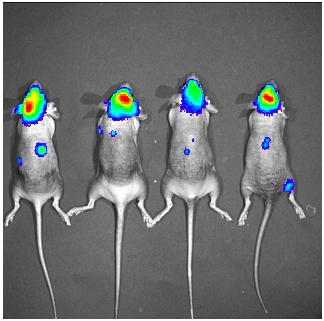We have a strong background in the fields of Cancer Biology and Neuroscience, which makes us a unique laboratory for studying secondary tumors affecting the brain.

The laboratory started operations in March 2015 to develop research in brain metastasis. Brain metastasis is a common progression of cancer. When metastatic cells reach the brain after leaving the primary tumor, which is frequently located in the breast, lung or the skin, the prognosis is dismal.
Local therapies are frequently not sufficient to control the disease affecting the brain and systemic therapies are in general more effective out of the brain, therefore, the incidence of brain metastasis is on the rise. In fact, brain metastases are currently the most common neurological complication of cancer, even more frequent than all brain primary tumors (such as glioblastoma) combined. We think that the specific biology of the brain requires new approaches to study metastatic disease in this organ.
In the laboratory we try to understand how metastatic cells from different cancer types are able to get access to the brain, survive and colonize this vital organ. And how, by doing so, metastases compromise the function of the brain. We do it by using innovative approaches derived from our background in both Cancer Biology and Neuroscience.
Our goal is to understand the biology of brain metastases and their impact on organ function using experimental mouse models as well as patient-derived material to translate this knowledge into more and better opportunities to prevent and to treat secondary brain tumors.














